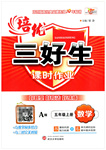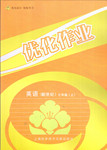题目内容
【题目】Directions: Fill in each blank with a proper word chosen from the box. Each word can be used only once. Note that there is one word more than you need.
A. defense B. avoid C. believing D. mistake E. required F. critical
G. cheating H. ashamed I. identify J. confirm K. similar
We are each responsible for our own decisions, even if the decision-making process has been cut down by stress or peer pressure. The real test of character is whether we can learn from our 【1】, by understanding why we acted as we did, and then exploring ways to avoid 【2】 problems in the future.
Making ethical (伦理的)decisions is a(n) 【3】 part of avoiding future problems. We must learn to recognize risks, because if we can’t see the risks we’re taking, we can’t make responsible choices. To 【4】 risks, we need to know the rules and be aware of the facts. For example, one who doesn’t know the rules about plagiarism (剽窃) may accidentally use words or ideas without giving proper credit or one who fails to keep careful research notes may unintentionally fail to quote and cite sources as 【5】. But the fact that such a violation is “unintentional” does not excuse the misconduct. Ignorance is not a 【6】.
Most people who get in trouble do know the rules and facts, but manage to fool themselves about the risks they’re taking by using excuses: “Everyone else does it,” “I’m not hurting anyone,” or “I really need this grade.” Excuses can get very complex: “I know I’m looking at another’s exam, even though I’m supposed to keep my eyes on my own paper, but that’s not 【7】 because I’m just checking my answers, not copying.” We must be honest about our actions, and 【8】 excuses. If we fool ourselves into 【9】 we’re not doing anything wrong, we can’t see the real choice we’re making--and that leads to bad decisions.
To avoid fooling yourself, watch out for excuses and try this test: Ask how you would feel if your actions were public, and anyone could be watching over your shoulder. Would you feel proud or 【10】 of your actions? If you’d rather hide your actions, that’s a good indication that you’re taking a risk and rationalizing it to yourself.
【答案】
【1】D
【2】K
【3】F
【4】I
【5】E
【6】A
【7】G
【8】B
【9】C
【10】H
【解析】
本文是一篇说明文,介绍了我们应该从错误中吸取教训,而不是为自己找借口,这样才能避免以后再犯类似的错误。
【1】考查名词。句意:真正的考验是我们是否能从错误中吸取教训。作动词短语learn from的宾语用名词,根据下文的“problems”可知此处指“错误”,故填D。
【2】考查形容词。句意:理解我们为什么这样做,然后找出避免以后出现类似问题的方法。修饰名词problems用形容词,根据“exploring ways to avoid”可知此处指“类似的”,故填K。
【3】考查形容词。句意:做出合乎道德的决定是避免以后的问题的关键部分。修饰名词part用形容词,根据“part of avoiding future problems”可知此处指“关键的”,故填F。
【4】考查动词。句意:要识别风险,我们需要了解规则,了解事实。空前的To为不定式符号,此处需要填动词原形,根据“risks”可知此处指“识别”,故填I。
【5】考查动词。句意:一个没有仔细记录研究笔记的人可能会无意中没有按要求引用和引用资料来源。根据“one who fails to keep careful research notes may unintentionally fail to quote and cite sources”可知此处表示“按要求”,本句实际上是as引导的方式状语从句的省略,完整部分应该是as he is required,故填E。
【6】考查名词。句意:不知道不能当作辩护(借口)。此处缺少名词作表语,空前说虽然这种违反行为是无意的,但不能成为不当行为的借口,因此此处指“辩护(借口)”,故填A。
【7】考查名词。句意:那不是作弊,因为我只是在对答案,而不是抄袭。根据句意可知此处缺少名词作表语,根据“not copying”可知此处指“作弊”,故填G。
【8】考查动词。句意:我们必须诚实对待自己的行为,避免找借口。此处缺少动词作谓语,根据“be honest about our actions”可知此处表示“避免”,故填B。
【9】考查非谓语动词。句意:如果我们自欺欺人地让自己相信没有做错事,那么我们将无法看清自己真正的选择,而这会让我们做出糟糕的决定。作介词into的宾语用动名词,根据“we’re not doing anything wrong”可知此处指“相信”,故填C。
【10】考查形容词。句意:你会为自己的行为感到骄傲还是羞愧?根据“feel proud or”可知此处表示“羞愧的”,be/feel ashamed of表示“对……感到羞愧”,故填H。

 培优三好生系列答案
培优三好生系列答案 优化作业上海科技文献出版社系列答案
优化作业上海科技文献出版社系列答案